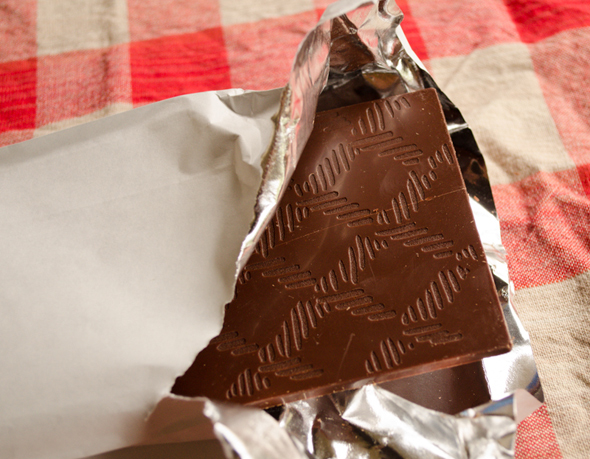Chocolate Poisoning
Although chocolate may be one of your favourite treats, never feed chocolate to your pet. It is poisonous for them! It contains substances called theobromine and caffeine (methylxanthine alkaloids) which are also contained in coffee, tea and some over-the-counter stimulants.
Chocolate poisoning is most commonly seen in dogs because of their habit to ingest food rapidly and they often have a “sweet tooth”. We see a higher incidence in puppies and young dogs, probably because they tend to ingest large amounts of unusual foods.
Chocolate poisoning can also affect cats, birds, rodents and reptiles however we see these cases much less frequently.
Symptoms of Chocolate Poisoning
The toxins in chocolate can affect you pet’s digestive system, nervous system and cardiovascular system.
Digestive system |
|
Nervous System |
|
Cardiovascular |
|
The toxins are found in the highest concentration in cooking chocolate and dark chocolate, and there are lesser amounts in milk chocolate. There is almost no toxins are found in white chocolate.
Diagnosis
Chocolate poisoning can look similar to many poisonings or other conditions. Serious poisonings such as that caused by strychnine, amphetamines, pesticides, and some rodenticides can cause similar signs.
If you know your pet has eaten chocolate, contact us immediately, especially if your pet is showing any of the symptoms above. If possible, bring any vomit to the clinic as well, since this may aid in rapid identification of the toxic substance. Your veterinarian will need to examine your dog's nervous system and cardiac function carefully. He/she may want to run some blood tests to check for blood sugar levels and rule out other diseases. Since this poisoning progresses rapidly, signs may need to be treated symptomatically until a laboratory diagnosis is confirmed.
Treatment
There is no antidote for chocolate poisoning. Your veterinarian may use drugs to induce vomiting if the chocolate was consumed within the previous 2 - 4 hours or they may even need to administer a general anaesthetic in order to pass a tube into the stomach to wash
Once the chocolate is out activated charcoal treatment may be given to prevent any toxins remaining from being absorbed.
Pets that show more severe symptoms may need more specific medications in order to control the seizures and to prevent heart failure.
The expected course of chocolate poisoning is 12 to 36 hours depending on the dosage and effectiveness of treatment. Prognosis is good if the chocolate is removed within 2 to 4 hours of ingestion. Prognosis is guarded in animals with advanced signs such as seizures and serious heart dysfunction. So, please remember to keep your chocolates, cakes and chocolate-coated goodies safely away from your pets. Stick to healthy treats if you want to reward your special furry or feathered friend.




